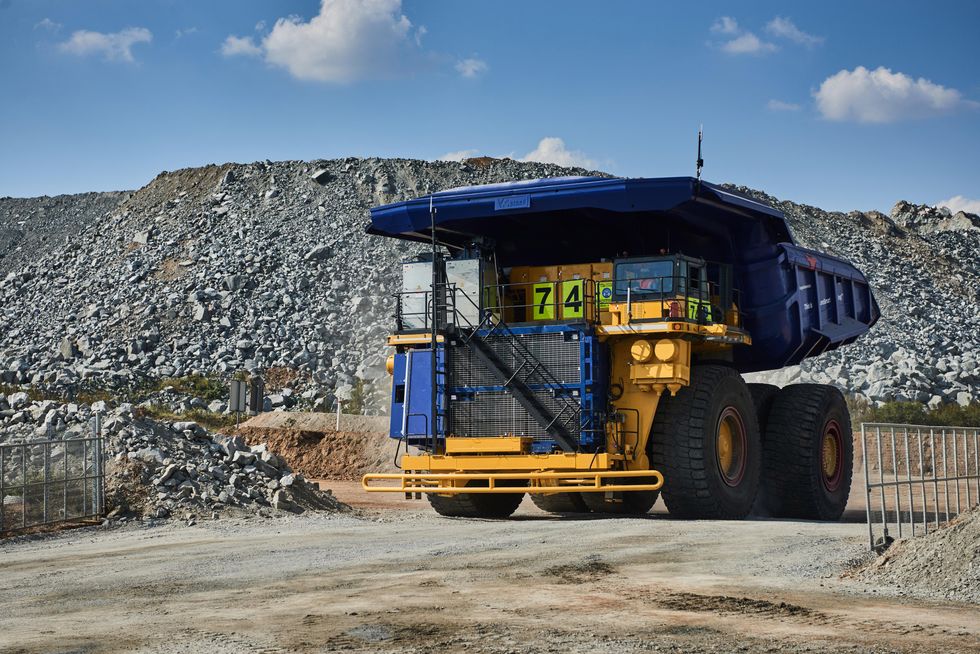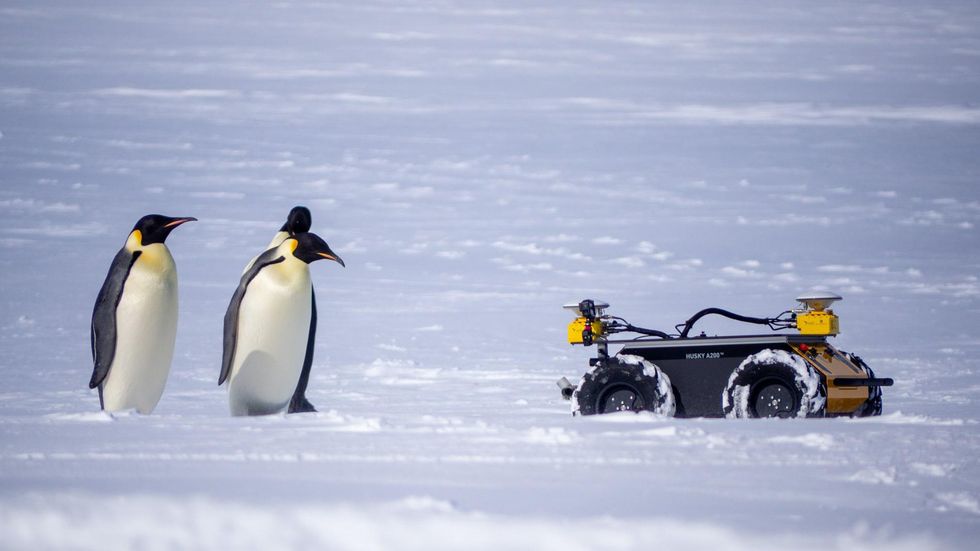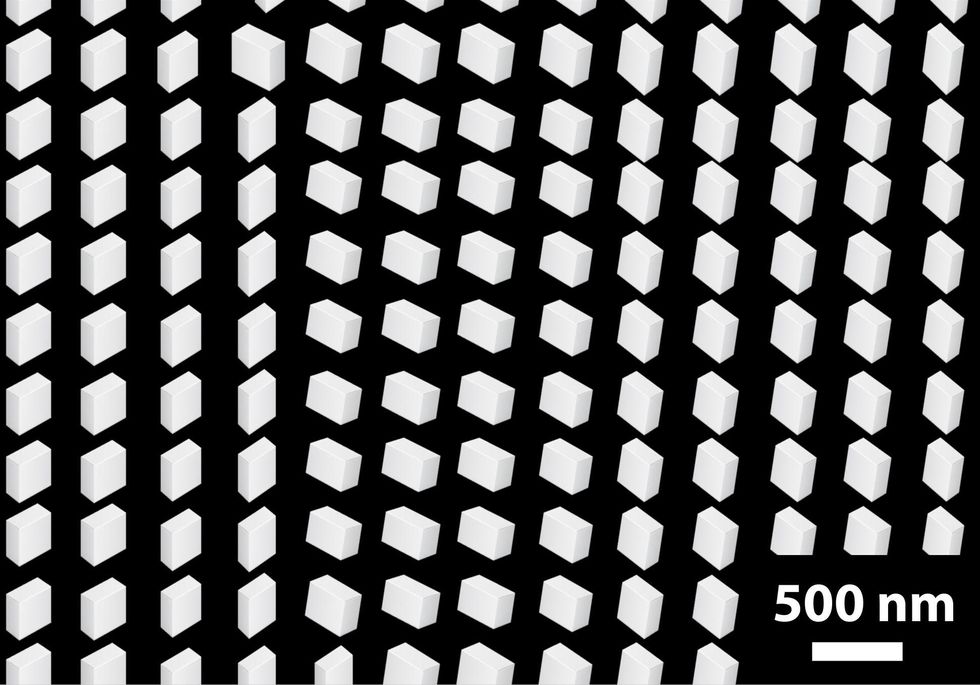Megatruck Runs on the Lightest Gas

The Big Picture features technology through the lens of photographers.
Every month, IEEE Spectrum selects the most stunning technology images recently captured by photographers around the world. We choose images that reflect an important advance, or a trend, or that are just mesmerizing to look at. We feature all images on our site, and one also appears on our monthly print edition.
Enjoy the latest images, and if you have suggestions, leave a comment below.
Megatruck Runs on the Lightest Gas
Big things are happening in the world of hydrogen-powered vehicles. One of the latest monumental happenings is the debut of Anglo American's 510-ton hydrogen-powered mining truck. The behemoth, which will put in work at a South African platinum mine, will replace an entire 40-truck fleet that services the mine. Together, those trucks consume about one million liters of diesel fuel each year. The new truck, whose power plant features eight 100-kilowatt hydrogen fuel cells and a 1.2-megawatt battery pack, is just the first earth-moving step in Anglo American's NuGen project aimed at replacing its global fleet of 400 diesel mining trucks with hydrogen-powered versions. According to the company's estimates, the switch will be the equivalent of taking half a million diesel-fueled passenger cars off the road.
Waldo Swiegers/Bloomberg/Getty Images
 South Pole Snooping Platform
South Pole Snooping PlatformSnooping on penguins for clues regarding how they relate to their polar environment is a job for machines and not men. That is the conclusion reached by a team of researchers that is studying how climate change is threatening penguins' icy Antarctic habitat and puzzling out how to protect the species that are native to both polar regions. Rather than subjecting members of the team to the bitter cold weather in penguins' neighborhoods, they're studying these ecosystems using hybrid autonomous and remote-controlled Husky UGV robots. Four-wheeled robots like the one pictured here are equipped with arrays of sensors such as cameras and RFID scanners that read ID tags in chipped penguins. These allow the research team, representing several American and European research institutes, to track individual penguins, assess how successfully they are breeding, and get a picture of overall penguin population dynamics-all from their labs and offices in more temperate climates.
Clearpath Robotics
 Seeing the Whole Scene
Seeing the Whole SceneThis is not a hailstorm with pieces of ice that are straight-edged instead of ball-shaped. The image is meant to illustrate an innovation in imaging that will allow cameras to capture stunning details of objects up close and far afield at the same time. The metalens is inspired by the compound eyes of a long-extinct invertebrate sea creature that could home in on distant objects and not lose focus on things that were up close. In a single photo, the lens can produce sharp images of objects as close as 3 centimeters and as far away as 1.7 kilometers. Previously, image resolution suffered as depth of field increased, and vice versa. But researchers from several labs in China and at the National Institute of Standards and Technology (NIST) in Gaithersburg, Md., have been experimenting with metasurfaces, which are surfaces covered with forests of microscopic pillars (the array of ice-cube-like shapes in the illustration). Tuning the size and shape of the pillars and arranging them so they are separated by distances shorter than the wavelength of light makes the metasurfaces capable of capturing images with unprecedented depth of field.
NIST
Painters specializing in automobile detailing might want to begin seeking out new lines of work. Their art may soon be the exclusive province of a robotic arm that can replicate images drawn on paper and in computer programs with unrivaled precision. ABB's PixelPaint computerized arm makes painting go much faster than is possible with a human artisan because its 1,000 paint nozzles deliver paint to a car's surface much the same way that an inkjet printer deposits pigment on a sheet of paper. Because there's no overspray, there is no need for the time-consuming masking and tape-removal steps. This level of precision, which puts 100 percent of the paint on the car, also eliminates paint waste, so paint jobs are less expensive. Heretofore, artistic renderings still needed the expert eye and practiced hand of a skilled artist. But PixelPaint has shown itself capable of laying down designs with a level of intricacy human eyes and hands cannot execute.
ABB